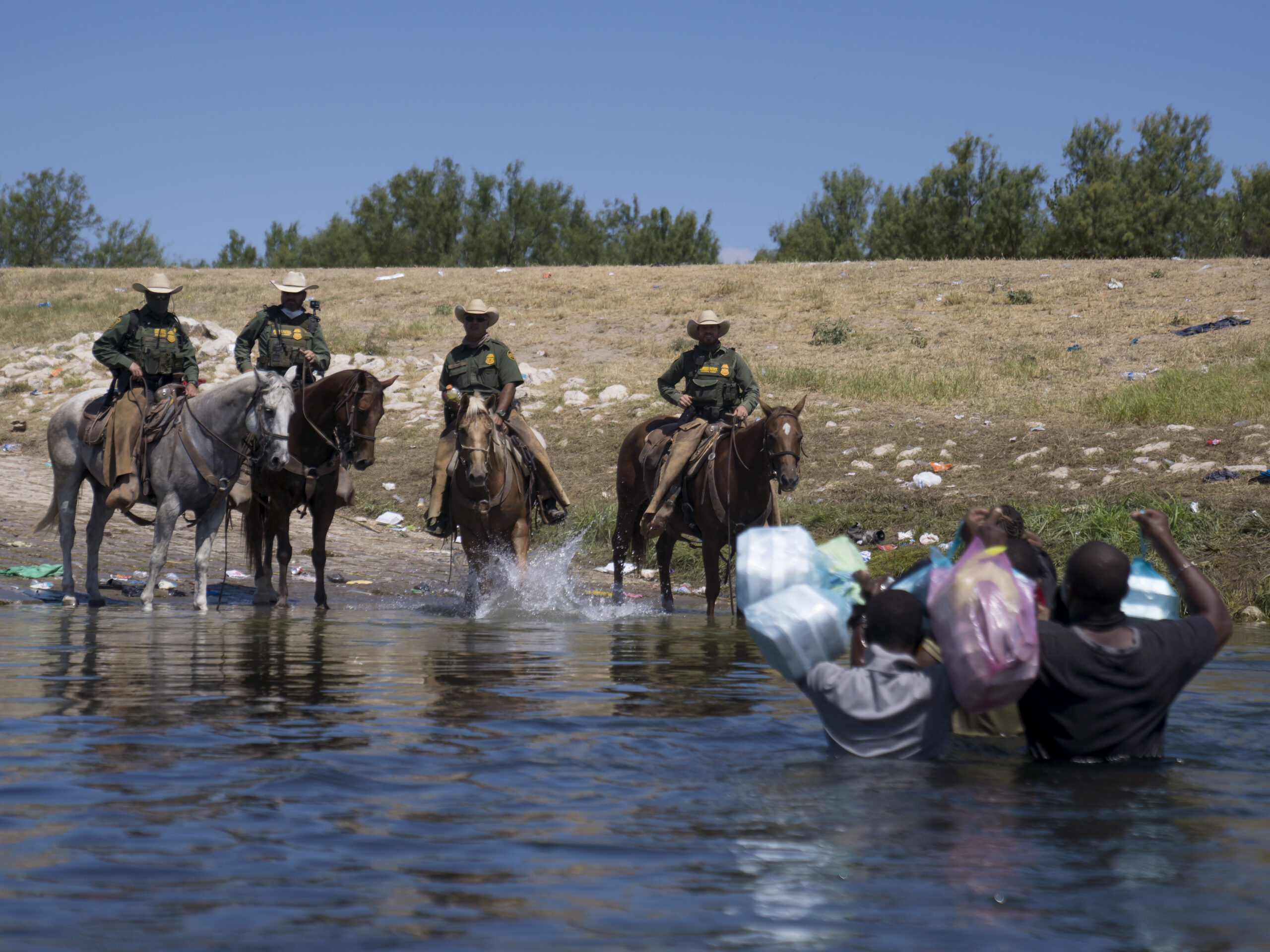Biden Says Border Agents’ Use Of Horses Against Migrants Was ‘Dangerous’ And ‘Wrong’

U.S. Border Patrol agents stop migrants crossing the Rio Grande River near the Del Rio-Acuna Port of Entry in Del Rio, Texas, U.S., on Sunday, Sept. 19, 2021. U.S. officials plan to expel thousands of Haitian migrants that arrived at the small Texas city of Del Rio this week. Photographer: Eric Thayer/Bloomberg
Eric Thayer / Bloomberg via Getty Images
President Biden says U.S. Border Patrol agents’ use of horses — and in at least one instance, long reins — to chase Haitian migrants was “outrageous,” promising consequences for those responsible for the controversial incident at the border in Texas.
Biden was asked about the agents’ actions near the international bridge in Del Rio, Texas, during a news briefing late Friday morning. Photos from the border interdiction quickly triggered outrage in the U.S. and beyond, as well as criticism for the Biden administration’s policy of rounding up Haitian migrants to be deported.
Asked if he takes responsibility for the chaos that has emerged at the border, Biden replied, “Of course I take responsibility. I’m president,” adding that it was “horrible” to see how federal agents treated the migrants.
“To see people treated like they did — horses [unintelligible] running them over, people being strapped. It’s outrageous. I promise you, those people will pay,” Biden said.
The president noted that the matter is being investigated.
“It’s an embarrassment — it’s beyond an embarrassment,” Biden added. “It’s dangerous, it’s wrong. It sends the wrong message around the world; it sends the wrong message at home. It’s simply not who we are.”
Horse patrols at that part of the border are now suspended, White House press secretary Jen Psaki said on Thursday. Earlier this week, Psaki repeatedly called the scene “horrific.”
Many of the migrants who were caught up in the border agents’ actions were attempting to bring food back from Mexico to a huge encampment under the international bridge in Del Rio, where more than 14,000 people had massed.
Most of the migrants are from Haiti, although some of the people are from Cuba, Brazil and other countries.
9(MDAxODM0MDY4MDEyMTY4NDA3MzI3YjkzMw004))








